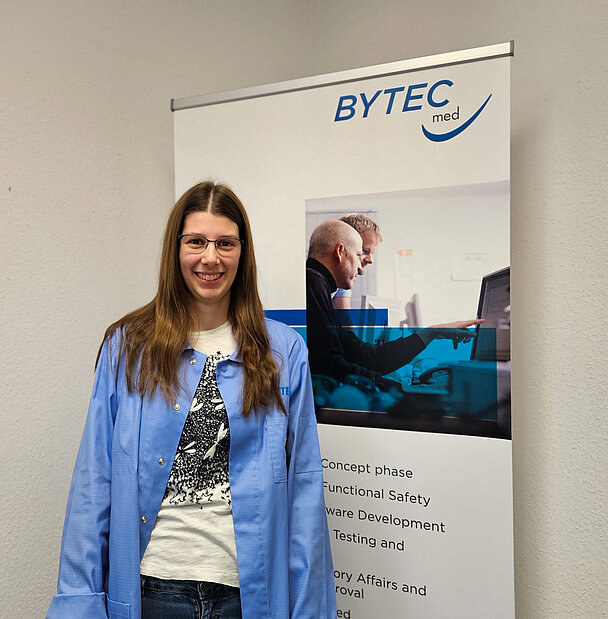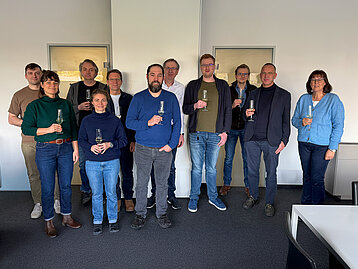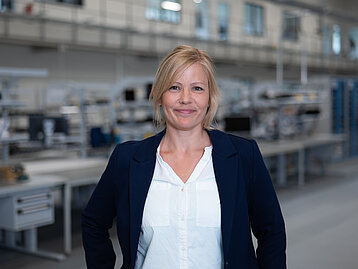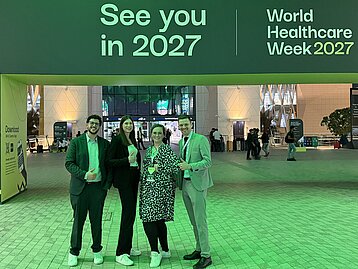Please introduce yourself briefly.
I am Susanne Rütten and I am doing a master's in electrical engineering.
How did you come to BYTEC?
In a roundabout way. While looking for a work placement, I spoke to various companies at Medica. A friend of mine knew one of my predecessors and suggested I come to the BYTEC stand with her. I spoke to André (Coenen, Head of Development, editor's note) there and then applied via the website. At the beginning, I wasn't sure whether it should be hardware or software. But in the end, I decided on hardware.
You just mentioned hardware as one of your responsibilities. What exactly does that involve?
I did a lot of different things. On the one hand, the more theoretical part, such as writing down requirements; in other words, what the hardware should be able to do. Then there was circuit diagram and circuit board design. But I also did a few odd jobs, such as soldering, designing a prototype in CAD, etc.
Was there something in particular that you enjoyed or are especially proud of?
After 2-3 months of designing circuit boards, finally holding the result in your hands. What's more, I actually soldered the first circuit board myself. Seeing what you originally only did as a 2D animation come to life in front of you... that was really cool.
How did you get in here? What is your impression?
Everything is very closely connected and the colleagues are easy-going. If you had a question, you could always ask them directly. Fortunately, I was in the office with a large number of the other hardware workers, so I didn't even have to send a team message or email. Super pleasant. And also that the “subdivisions” (hardware, software, construction, etc.) are so close that you just have to go to the other end of the hallway instead of across the building.

What are you happy to look back on? What will you miss about us?
That I had the time to familiarize myself properly with the subject matter. For example, to take my time to read more deeply into data sheets. Perhaps a small bonus as a trainee. During my studies, I am used to projects having to work on the fly, so to speak, and here I was able to focus more, and simply spend two days researching LED drivers, for example.
What's next for you?
I still have 2-3 semesters of my master's ahead of me, and after that I'll have to see. I'm still considering whether it should be a doctorate or economics. I'm still looking. Fittingly, I even have a workshop on that at the university (laughs).
Is there anything you would recommend to your successors?
Take it easy. During the interview, I thought I had to come with a ton of prior knowledge. Ultimately, it's perfectly okay not to know everything. We get the time to familiarize ourselves.


